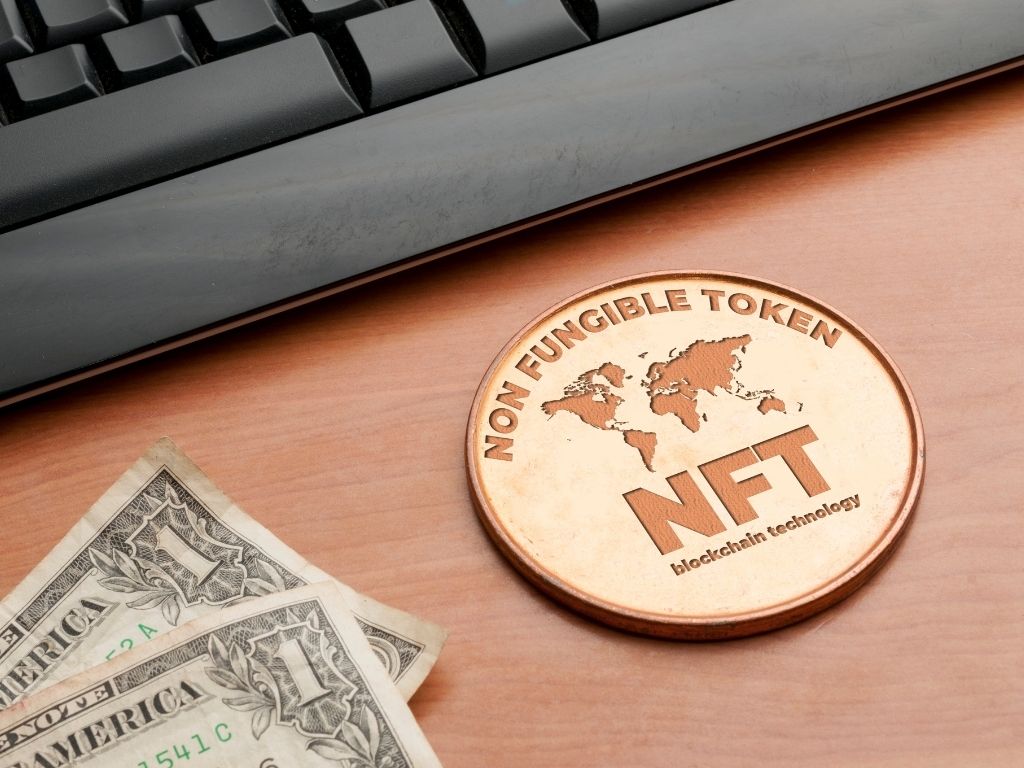Top 10 NFT Security Challenges And The Tools We Need For Generating NFT Solutions
NFT security encompasses measures and practices to ensure the protection, integrity, and safe use of NFTs within the blockchain ecosystem. Security considerations for NFTs involve various aspects, including smart contracts, wallets, marketplaces, and overall user interactions.
Ensuring the security of NFTs (Non-Fungible Tokens) is paramount in the blockchain space. Smart contract vulnerabilities pose a significant risk, necessitating rigorous audits and adherence to best coding practices. Potential coding errors or exploits could compromise the integrity of NFTs and users’ funds. Secure wallet management is imperative, urging users to safeguard private keys against potential phishing attacks or malware. Metadata associated with NFTs is susceptible to tampering, impacting asset provenance and authenticity. Robust decentralized storage solutions, such as IPFS, enhance data security. Marketplace vulnerabilities, including DDoS attacks or server breaches, emphasize the need for stringent security measures. Legal and regulatory uncertainties pose additional challenges, requiring compliance to safeguard against intellectual property and copyright issues. Educating users on recognizing phishing attempts, understanding gas fees, and promoting secure practices is integral to overall NFT security. Regular security audits, continuous monitoring, and community vigilance contribute to a resilient security framework, fostering trust and confidence in the rapidly evolving NFT ecosystem.
Key aspects of NFT security

- Smart Contract Security:
- Audits: Regular security audits of NFT security smart contracts to identify and address vulnerabilities that could compromise the integrity of the tokens and user funds.
- Code Best Practices: Adherence to best coding practices and standards to minimize the risk of coding errors or vulnerabilities.
- Wallet Security:
- Private Key Protection: Encouraging users to securely manage and store their private keys, which are crucial for accessing and managing NFTs.
- Secure Wallets: Using reputable and secure NFT security wallets that implement robust security measures to protect user assets.
- Marketplace Security:
- Two-Factor Authentication: Implementation of two-factor authentication (2FA) to enhance user account security on NFT marketplaces.
- HTTPS: Ensuring secure communication between users and the marketplace through HTTPS protocols to prevent man-in-the-middle attacks.
- Metadata and Storage:
- Decentralized Storage: Storing NFT security metadata on decentralized platforms like IPFS (InterPlanetary File System) to enhance data availability and prevent a single point of failure.
- Data Encryption: Encrypting sensitive information in metadata to protect user privacy.
- User Education:
- Providing educational resources to users, including best practices for securing private keys, recognizing phishing attempts, and understanding the risks associated with NFT transactions.
- Gas Fee Awareness:
- Educating users about the significance of gas fees and advising caution to avoid phishing attempts related to transactions.
- Legal and Regulatory Compliance:
- Ensuring compliance with relevant legal and regulatory frameworks to address potential legal challenges and protect users from fraudulent activities.
- Continuous Monitoring:
- Implementing continuous monitoring mechanisms to detect and respond to security incidents promptly.
- Interoperability Considerations:
- Considering interoperability with other blockchain networks and platforms, ensuring a secure transfer of NFTs across different ecosystems.
- Community Vigilance:
- Fostering a vigilant community that actively reports and addresses potential security threats or vulnerabilities.
Also, read- What Are NFTs: Non-Fungible Tokens and Their Impact on Digital Assets
Top 10 NFT security challenges

- Smart Contract Vulnerabilities:
- Smart contracts powering NFTs are susceptible to vulnerabilities, including coding errors, logical flaws, or exploits that could be exploited by attackers. Security audits are crucial to identify and mitigate these risks.
- Phishing and Social Engineering:
- Phishing attacks targeting users to trick them into revealing private keys or accessing malicious websites. Users must be educated about recognizing phishing attempts and practicing good NFT security hygiene.
- Wallet Security:
- Insecure storage or management of private keys poses a significant risk. Users may fall victim to keyloggers, malware, or other attacks compromising their wallet security.
- Metadata Tampering:
- The metadata associated with NFTs may be vulnerable to tampering, altering the information linked to an NFT. This can affect the provenance and authenticity of digital assets.
- Marketplace Vulnerabilities:
- NFT marketplaces may be susceptible to security vulnerabilities, such as DDoS attacks, server breaches, or other exploits that can impact user accounts, transactions, or overall platform stability.
- Legal and Regulatory Risks:
- Uncertain or evolving legal and regulatory frameworks pose challenges to NFT platforms and users. Issues related to intellectual property, copyright infringement, and legal ownership may arise.
- Gas Fee Manipulation:
- The cost of gas fees in blockchain transactions can be manipulated by malicious actors, leading to inflated fees for unsuspecting users. Awareness and education are crucial to prevent users from falling victim to such schemes.
- Scalability Concerns:
- Scalability challenges on certain blockchain networks can lead to congestion and higher transaction fees. This can affect the user experience and increase the risk of delayed transactions.
- Environmental Impact:
- The environmental impact of certain blockchain networks, especially those using Proof-of-Work consensus, has raised concerns. NFT platforms on such networks may face challenges related to sustainability and environmental responsibility.
- Interoperability Issues:
- NFTs created on one blockchain may face interoperability challenges when interacting with platforms on different blockchains. This can limit the seamless transfer and use of NFTs security across ecosystems.
Tools for generating NFT solutions

Developing NFT (Non-Fungible Token) solutions involves a combination of blockchain development tools, smart contract frameworks, and other technologies. Here are some essential tools and technologies you may need for generating NFT solutions:
- Blockchain Platforms:
- Ethereum: The most widely used blockchain platform for NFTs, supporting standards like ERC-721 and ERC-1155.
- Binance Smart Chain (BSC): An alternative blockchain that supports NFTs with lower transaction fees compared to Ethereum.
- Flow: A blockchain designed for NFTs and decentralized applications (DApps).
- Smart Contract Development:
- Solidity: The programming language used for writing smart contracts on Ethereum. Learning Solidity is crucial for NFT development on the Ethereum blockchain.
- Rust (for Flow): The language used for developing smart contracts on the Flow blockchain.
- Smart Contract Testing and Deployment:
- Truffle: A development framework for Ethereum that facilitates smart contract testing, deployment, and management.
- Hardhat: A development environment for Ethereum that includes testing, debugging, and deployment tools.
- Decentralized Storage:
- IPFS (InterPlanetary File System): A decentralized and distributed file storage system commonly used to store NFT metadata and content off-chain.
- NFT Standards Libraries:
- OpenZeppelin: A library for secure smart contract development, including implementations of popular NFT standards.
- ERC-721 and ERC-1155 Templates: Ready-made templates for creating ERC-721 and ERC-1155 compliant contracts.
- Web3 Libraries:
- Web3.js: A JavaScript library that allows interaction with Ethereum nodes and smart contracts from a web browser.
- ethers.js: An alternative JavaScript library for interacting with Ethereum smart contracts and nodes.
- Wallet Integration:
- MetaMask SDK: A browser extension wallet that allows users to interact with Ethereum-based NFTs directly from their browsers.
- WalletConnect: A standard for connecting decentralized applications to mobile wallets.
- Marketplace Integration:
- OpenSea SDK: Tools and resources for integrating your NFTs with the OpenSea marketplace.
- Rarible SDK: Resources for integrating your NFTs with the Rarible marketplace.
- Development Environments:
- Visual Studio Code (VS Code): A popular code editor with extensions for Solidity and Ethereum development.
- Remix IDE: An online development environment for writing, testing, and deploying smart contracts.
- Security Auditing Tools:
- MythX: A security analysis tool for Ethereum smart contracts that identifies vulnerabilities and provides security reports.
- Securify: A security scanner for Ethereum smart contract
5️⃣ Strong Business Structure:
— Landon Sousa | Avem (@avemfn) January 18, 2024
The structure of how MadLads operates is unlike most NFT projects. Having an exchange such as @Backpack makes this structure so powerful.
With opportunity to revolutionize the space through – security, multi party computation, customer self custody… pic.twitter.com/07CZ8ReyGw
Conclusion
In conclusion, the burgeoning realm of Non-Fungible Tokens (NFTs) introduces a spectrum of security challenges that necessitate vigilant consideration and proactive measures. The evolving nature of blockchain technology requires a holistic approach to fortify NFT solutions against potential threats.
Smart contract vulnerabilities stand as a primary concern, demanding the implementation of robust auditing tools and practices. Static analysis and formal verification become imperative in identifying and rectifying vulnerabilities, ensuring the integrity and security of the underlying smart contracts.
Addressing the human element, phishing and social engineering threats underscore the importance of user education and awareness campaigns. Coupled with browser extensions and tools designed to detect phishing attempts, these measures form a crucial line of defense against unauthorized access to private keys and fraudulent activities.
The intricacies of metadata associated with NFTs present another facet of vulnerability. To mitigate privacy concerns and potential exploitation, encryption protocols and decentralized identity solutions are essential. These measures secure metadata, restricting access to sensitive information only to authorized entities.
Front-end vulnerabilities add an additional layer of complexity, emphasizing the need for secure coding practices and continuous monitoring. By fortifying the user interface and employing best practices in web development, NFT platforms can reduce the risk of exploitation and unauthorized access.
The dynamic nature of the NFT ecosystem requires a robust approach to transaction security. Protecting users from unauthorized transactions and mitigating the risk of replay attacks necessitate the integration of secure transaction protocols and validation mechanisms.
Marketplace-related challenges, such as fake listings and counterfeit NFTs, underscore the need for decentralized and trustless verification mechanisms. Implementing decentralized identity solutions and consensus-based verification processes enhances the authenticity of NFT listings, fostering a more secure marketplace environment.
Scalability concerns in blockchain networks can impact the security and efficiency of NFT transactions. Integrating layer 2 solutions and optimizing gas fees contribute to a more scalable and user-friendly NFT ecosystem.
The evolving regulatory landscape introduces compliance challenges for NFT platforms. Collaboration with legal experts and adherence to regulatory frameworks ensure that NFT solutions align with evolving compliance standards, fostering long-term sustainability.
In summary, addressing the spectrum of security challenges in the NFT ecosystem requires a multifaceted and collaborative approach. By integrating cutting-edge tools, fostering user education, and continuously adapting to emerging threats, the NFT space can thrive in a secure and resilient manner, unlocking its full potential for creators, collectors, and enthusiasts alike.
Stay informed with daily updates from Blockchain Magazine on Google News. Click here to follow us and mark as favorite: [Blockchain Magazine on Google News].
Get Blockchain Insights In Inbox
Stay ahead of the curve with expert analysis and market updates.
latest from tech
Disclaimer: Any post shared by a third-party agency are sponsored and Blockchain Magazine has no views on any such posts. The views and opinions expressed in this post are those of the clients and do not necessarily reflect the official policy or position of Blockchain Magazine. The information provided in this post is for informational purposes only and should not be considered as financial, investment, or professional advice. Blockchain Magazine does not endorse or promote any specific products, services, or companies mentioned in this posts. Readers are encouraged to conduct their own research and consult with a qualified professional before making any financial decisions.

 Bitcoin
Bitcoin  Ethereum
Ethereum  Tether
Tether  XRP
XRP  Solana
Solana  Dogecoin
Dogecoin  USDC
USDC  Lido Staked Ether
Lido Staked Ether  Cardano
Cardano  TRON
TRON  Avalanche
Avalanche  Toncoin
Toncoin  Wrapped stETH
Wrapped stETH  Chainlink
Chainlink  Shiba Inu
Shiba Inu  Wrapped Bitcoin
Wrapped Bitcoin  Sui
Sui  Stellar
Stellar  Hedera
Hedera  Polkadot
Polkadot  WETH
WETH  Hyperliquid
Hyperliquid  Bitcoin Cash
Bitcoin Cash  LEO Token
LEO Token  Uniswap
Uniswap  Litecoin
Litecoin  Pepe
Pepe  Wrapped eETH
Wrapped eETH  NEAR Protocol
NEAR Protocol  Ethena USDe
Ethena USDe  USDS
USDS  Internet Computer
Internet Computer  Aave
Aave  Aptos
Aptos  POL (ex-MATIC)
POL (ex-MATIC)  Cronos
Cronos  Mantle
Mantle  Ethereum Classic
Ethereum Classic  Render
Render  Monero
Monero  MANTRA
MANTRA  WhiteBIT Coin
WhiteBIT Coin  Virtuals Protocol
Virtuals Protocol  Bittensor
Bittensor  Dai
Dai  Artificial Superintelligence Alliance
Artificial Superintelligence Alliance  Arbitrum
Arbitrum 



